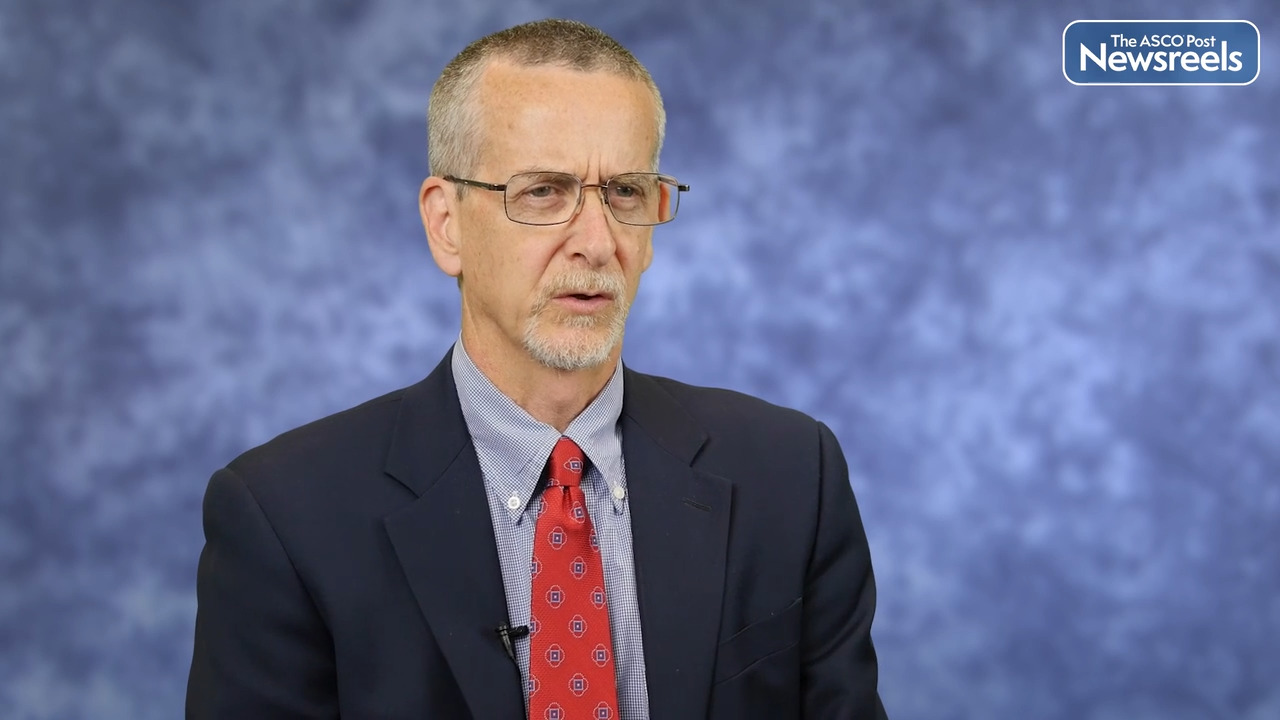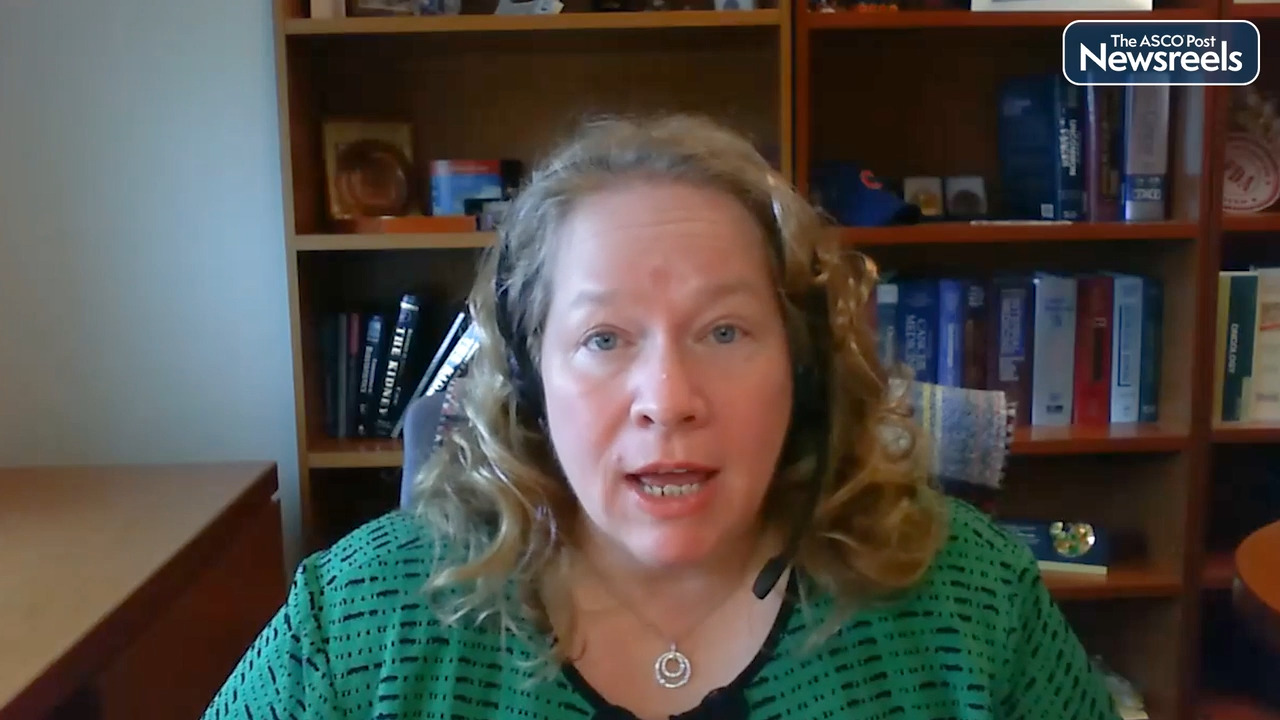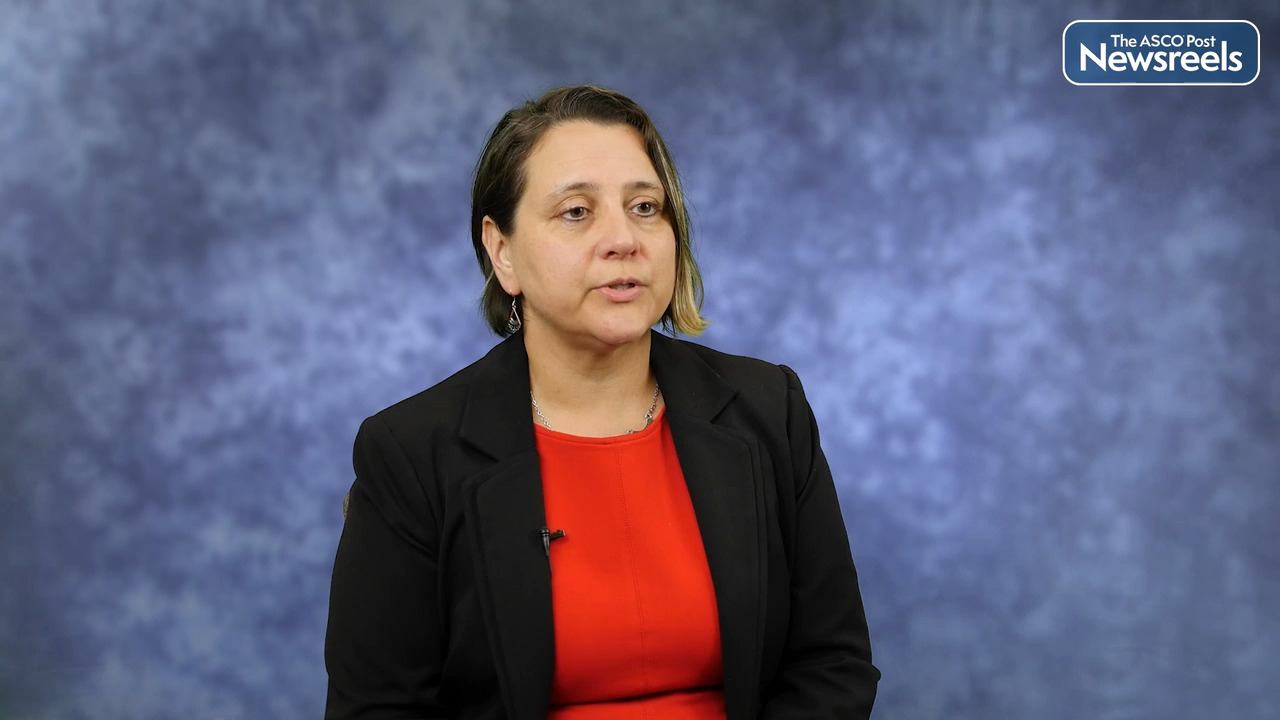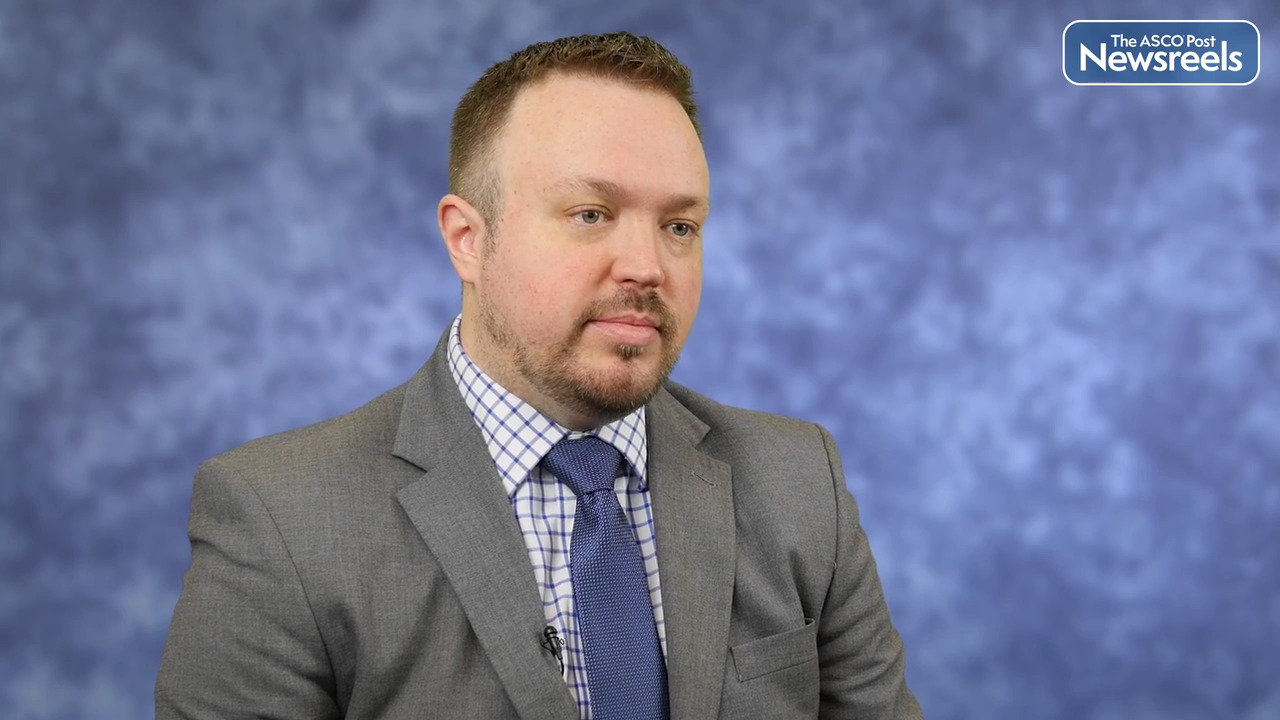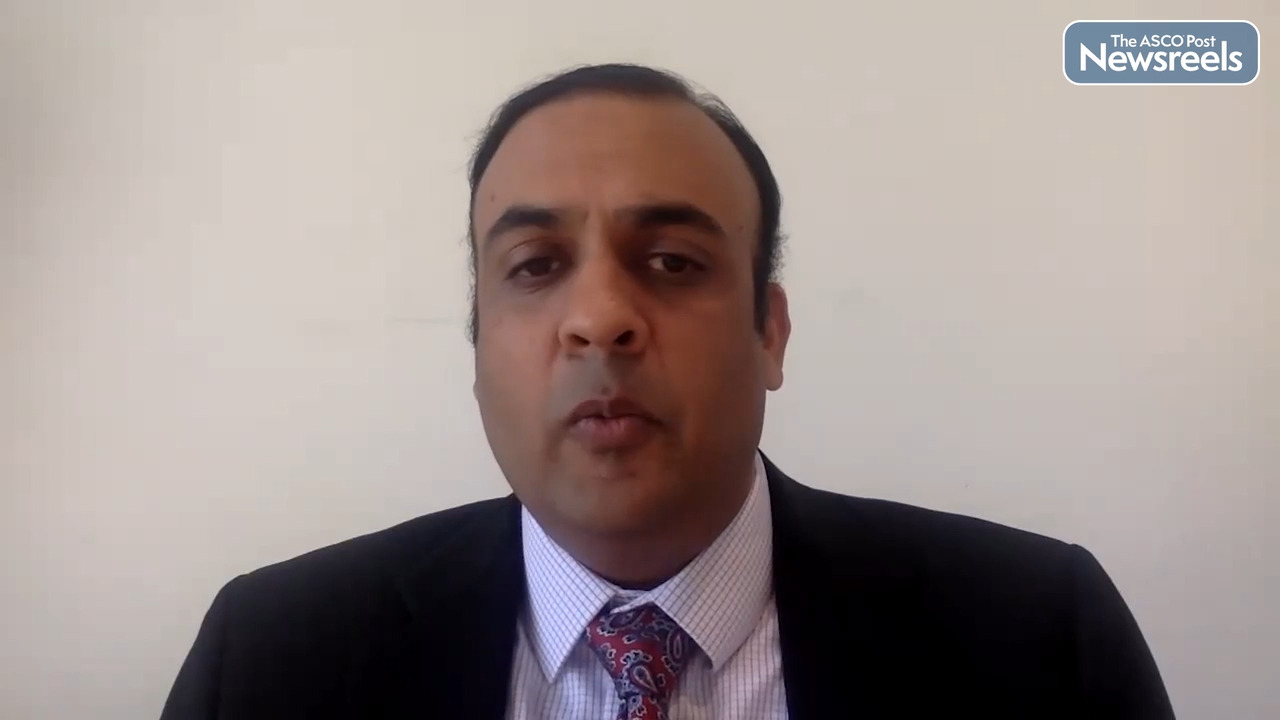Natalie Moryl, MD, on Managing Pain in Patients With Cancer
NCCN 2023 Annual Conference
Natalie Moryl, MD, of Memorial Sloan Kettering Cancer Center, discusses severe cancer pain, a medical emergency that should be addressed with immediate intervention. The treatment plan, Dr. Moryl says, should include making a pain diagnosis; addressing reversible causes of pain such as spinal cord compression, fracture, or obstruction; selecting, titrating, and rotating opioids and co-analgesics; and routine screening for risks of opioid use disorder and mental health comorbidities.
The ASCO Post Staff
Louis B. Nabors, MD, of the O’Neal Comprehensive Cancer Center at UAB, discusses the three subtypes of adult gliomas classified by the World Health Organization, treatments influenced by IDH mutation status, the roles of radiotherapy and chemotherapy, molecular testing, and pseudoprogression and RANO (response assessment in neuro-oncology) criteria.
The ASCO Post Staff
Arlene O. Siefker-Radtke, MD, of The University of Texas MD Anderson Cancer Center, provides an overview of the emerging treatments for urothelial cancer, including several new agents in the antibody-drug conjugate and tyrosine kinase inhibitor classes. She describes the clinical activity and toxicities of enfortumab vedotin-ejfv, erdafitinib, and sacituzumab govitecan-hziy.
The ASCO Post Staff
Mandi L. Pratt-Chapman, PhD, of the George Washington University Cancer Center, discusses the specific health-care needs for cancer screening, treatment, and survivorship among members of the LGBTQI+ community. Because clinical practices and research studies do not routinely collect sexual orientation and gender identity data, there is insufficient evidence to guide clinical care decision-making, Dr. Pratt-Chapman says.
The ASCO Post Staff
Jordan McPherson, PharmD, MS, BCOP, of the Huntsman Cancer Institute at the University of Utah, summarizes a case-based panel discussion on best practices in caring for patients with immune-related adverse events. He focuses on pneumonitis, which can occur with immune checkpoint inhibitor therapy, detailing factors such as comorbidities, infectious etiology, and disease progression; the need to consider myositis and myasthenia gravis in patients who develop immune-related myocarditis; and oral toxicities including mucositis and sicca syndrome.
The ASCO Post Staff
Mitesh J. Borad, MD, of the Mayo Clinic Comprehensive Cancer Center, discusses the expanding number of options in immunotherapies for patients with advanced hepatobiliary cancers, applying targeted treatments to this disease, and the importance of genomic profiling in patients with biliary tract cancers.
